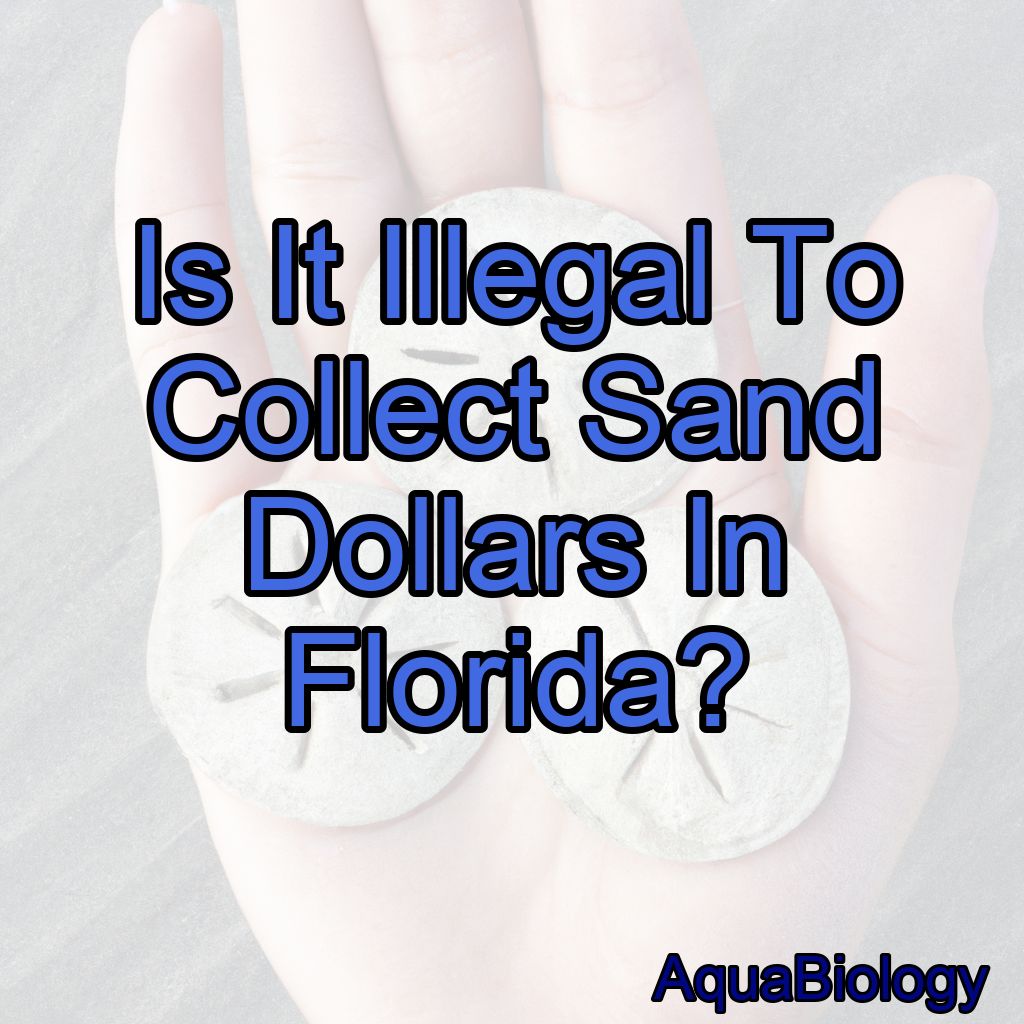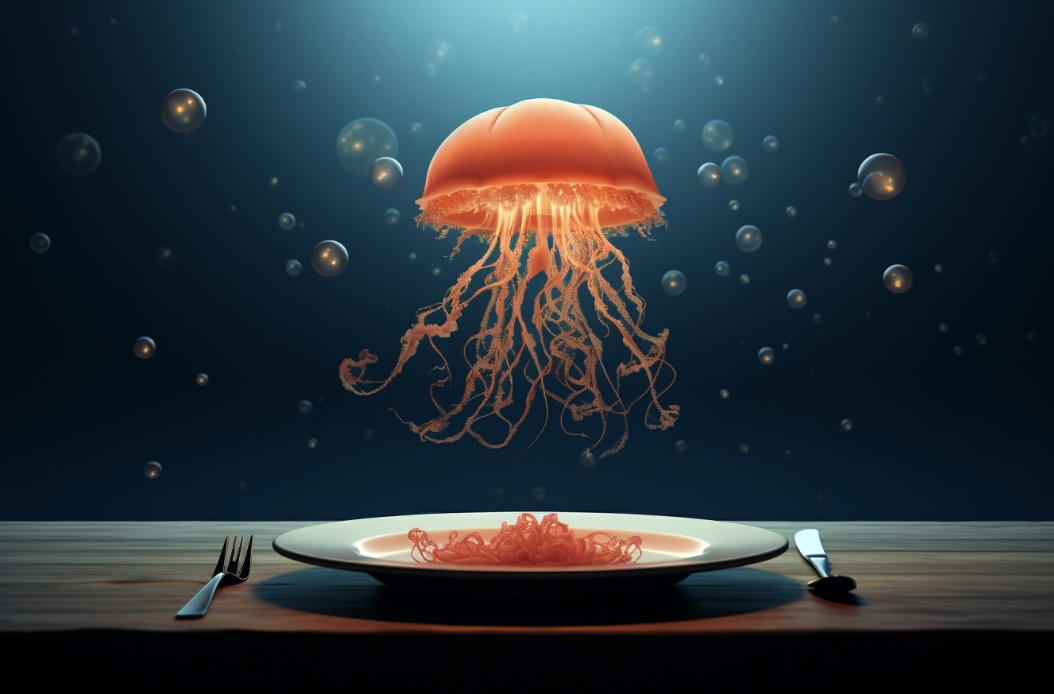As a marine biologist, I have always had a fascination with sand dollars. These beautiful and intricate creatures are a common sight on the beaches of Florida, and many tourists are tempted to collect them as souvenirs.
Yes, it is illegal to collect live sand dollars in Florida without a recreational saltwater fishing license. Dead sand dollars can be collected in small quantities.
However, the question arises: is it illegal to collect sand dollars in Florida? In this blog post, I will explore this topic in detail and provide you with all the information you need to know.
What are Sand Dollars?
Before we dive into the legality of collecting sand dollars in Florida, let’s first take a closer look at what they are.
Sand dollars are a type of echinoderm, which means they are related to sea stars, sea urchins, and sea cucumbers.
They are flat, disc-shaped creatures that are covered in tiny spines and are usually found in shallow waters along the coastline.
Sand dollars are known for their distinctive five-pointed pattern, which is created by their internal skeleton.
They are also known for their intricate feeding and respiratory systems, which are essential to their survival.
The Legal Status of Sand Dollars in Florida
Now that we know what sand dollars are, let’s turn our attention to the legal status of collecting them in Florida.
The short answer is that it is generally illegal to collect live sand dollars in Florida.
This is because sand dollars are considered to be part of the state’s marine life, and as such, they are protected under Florida law.
Under Florida law, it is illegal to take, possess, or sell any marine life that is protected by the state.
This includes sand dollars, as well as other creatures such as sea turtles, lobsters, and conch.
Violating this law can result in fines and even imprisonment, so it is important to take it seriously.
Why are Sand Dollars Protected in Florida?

You might be wondering why sand dollars are protected in Florida. After all, they are just small, harmless creatures that wash up on the beach, right?
The truth is that sand dollars play an important role in the ecosystem of Florida’s beaches.
Sand dollars are considered to be a keystone species, which means that they have a significant impact on the other organisms in their environment.
They help to maintain the balance of the ecosystem by feeding on algae and other small organisms, which can prevent overgrowth and keep the beach healthy.
How to Identify Live vs.
Dead Sand Dollars
One of the challenges of collecting sand dollars in Florida is that it can be difficult to tell the difference between live and dead specimens. As we have already established, it is illegal to collect live sand dollars, so it is important to be able to identify them.
Live sand dollars are typically darker in color and have small, hair-like spines covering their body. They will also have tiny, tube-like feet that they use to move around and feed.
Dead sand dollars, on the other hand, are usually lighter in color and have smooth, clean-looking bodies. They will not have any visible spines or feet.
The Importance of Leaving Sand Dollars on the Beach
Even if you are able to identify dead sand dollars, it is still important to leave them on the beach.
This is because they play an important role in the ecosystem, even after they have died.
Dead sand dollars provide food and shelter for other organisms, such as crabs and seagulls.
They also help to create sand dunes and stabilize the beach, which can prevent erosion and protect the coastline from storms.
Alternatives to Collecting Sand Dollars
If you are looking for a souvenir to take home from your trip to Florida, there are plenty of alternatives to collecting sand dollars.
Many gift shops and beachside vendors sell souvenirs made from shells and other marine materials that are legal to collect and purchase.
You can also take photos and videos of the sand dollars and other marine life that you encounter on the beach. This is a great way to capture the beauty of Florida’s marine ecosystem without harming it in any way.
#
Conclusion
In conclusion, it is illegal to collect live sand dollars in Florida.
Sand dollars are an important part of the state’s marine ecosystem, and their protection is essential to maintaining the balance of the beach environment.
Here are five key facts to remember:
1. Sand dollars are protected under Florida law.
2. It is illegal to take, possess, or sell live sand dollars in Florida.
3. Dead sand dollars are also important to the ecosystem and should be left on the beach.
4. Sand dollars are a keystone species that help to maintain the balance of the beach ecosystem.
5. There are plenty of legal alternatives to collecting sand dollars, such as purchasing souvenirs from gift shops or taking photos and videos of the marine life on the beach.
FAQs
How much is a dead sand dollar worth?
A dead sand dollar is not worth anything as it is a natural object and has no commercial value.
It is illegal to collect live sand dollars in some areas, so it is important to check local regulations before collecting them.
Is it illegal to keep dead sand dollars? It is illegal to keep dead sand dollars in some states and countries, as they are protected under wildlife conservation laws.
It is best to check with local authorities before collecting or keeping any marine life.
Is it OK to take dead sand dollars from the beach?
No, it is not OK to take dead sand dollars from the beach as they play an important role in the ecosystem by providing food and shelter for other marine organisms.
Additionally, some beaches have regulations against removing any natural objects, including dead shells and sand dollars.
What happens when a sand dollar dies? When a sand dollar dies, its hard outer shell may wash up on shore or remain on the ocean floor.
Over time, the shell will break down and decompose, returning its nutrients to the surrounding ecosystem.
Are sand dollars illegal to take from the beach?
It depends on the location and local regulations.
In some areas, it may be illegal to take sand dollars from the beach.
It is important to check with local authorities or do research beforehand to avoid breaking any laws.
Is it OK to take sand dollars off the beach? No, it is not OK to take sand dollars off the beach as they are living creatures and play an important role in the ecosystem.
It is also illegal to take them in some areas. If you find a sand dollar on the beach, it is best to leave it there and admire it in its natural habitat.




